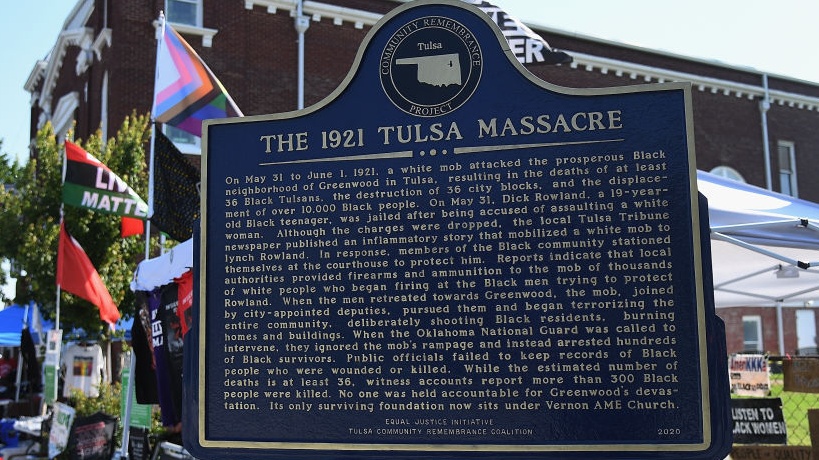The Tulsa Massacre is trending on Twitter as people are talking about the first time they learned about one of the most significant moments in Black history. Most social media users shared similar stories, saying they didn't learn about the horrific event until they became adults. After going through school without learning about the massacre carried out against Black residents in Tulsa, Oklahoma, many people said they only heard about the tragedy in recent years.
According to the Tulsa Historical Society and Museum, at least 300 Black residents died when armed white mobs looted and burned down the Greenwood District, also known as Black Wall Street, in 1921. Before the attack, Black Wall Street was a thriving neighborhood, which served as the home of many prosperous Black businesses.
The white mobs, however, destroyed dozens of homes and businesses in the district on June 1, 1921. The attack was a retaliation against Black residents who rallied to protect Dick Rowland, a young man who was about to be lynched after he was falsely accused of harassing a white woman.
In the 100 years since the brutal tragedy, the details have been largely hidden from the public.
I didn’t learn about the Tulsa Massacre until a few years ago. Was never taught about it in school. We have got to stop whitewashing history. Kids need to be taught ALL of it.
— Erie Siobhan ???????? (@ErieNotEerie) October 27, 2021
People pointed out that the subject is notably absent in educational curriculums, similar to other significant topics in Black history.
This a wonderful read.
I’m not afraid to say that as a Black person I barley even knew my own people’s history walking into college.
Tulsa Massacre, Central Park 5, so much more.
Completely absent in my K-12 education.
How embarrassed I was when I learned what I didn’t know. https://t.co/fY3fpMh5Oh
— Devoun Cetoute (@devoun_cetoute) October 27, 2021
Oklahoma residents have also lived most of their lives without learning about the massacre.
I have been in Oklahoma since 1970. My husband grew up here and went to school in Oklahoma his whole life and we didn't hear anything about the Tulsa Massacre until the last couple of years. Pretty sad if you ask me.
— Todays GQP are Cowards and Traitors (@bully4me16) October 27, 2021
Some didn't hear about the Tulsa Massacre until they became senior citizens.
I'm 67. I learned about the Tulsa Massacre as a grandfather on Twitter. Even lived through the Civil Rights Movement of the '60's and didn't learn about the Tulsa Massacre…..smdh#BuriedHistory
— Fran McTamney (@fxmct71) October 27, 2021
I learned about a lot of things in school but never about the Tulsa Massacre and that my friend, is why Critical Race Theory is so important pic.twitter.com/x826F3pUQX
— raveen marie ???? (@xoraveen) October 27, 2021
While many schools have failed to teach about Black Wall Street, some historians and social media accounts are raising awareness of its history.
I was in Advanced Placement U.S. History in high school, had an amazing teacher, and I STILL never heard of the Tulsa Massacre until 2018 or 2019. Heard about it from one of the many smart progressive accounts (like yours) that I follow on here https://t.co/mQIzRWIlMT
— Fully Vaxxed Paul M. Banks (@PaulMBanks) October 27, 2021
As Blavity previously reported, no one has ever been held accountable for the massacre. A group known as Justice for Greenwood Advocates and Lessie Benningfield Randle, a 106-year-old survivor of the massacre, filed a lawsuit last year to receive compensation for damages inflicted by the attacks.
“The Greenwood massacre deprived Black Tulsans of their sense of security, hard-won economic power and vibrant community," attorney Damario Solomon-Simmons said. "[It] created a nuisance that continues to this day. The nuisance has led to the devaluation of property in Greenwood and has resulted in significant racial disparities in every quality of life metric — life expectancy, health, unemployment, education level and financial security."
